 Cold War Radio Museum
Cold War Radio Museum
October 16, 2016
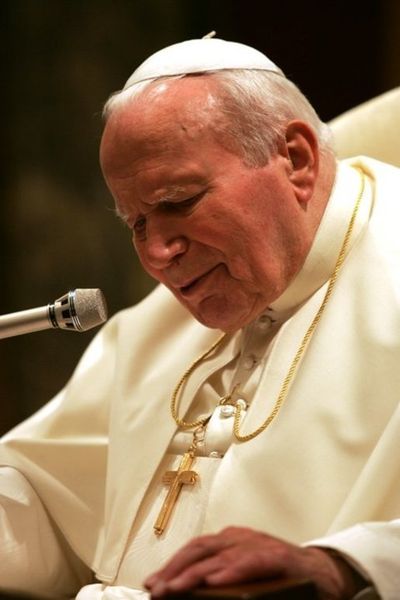 A radio interview with future Pope John Paul II, recorded and first broadcast by the Voice of America (VOA) in 1976, was rebroadcast by VOA’s Polish Service on October 16, 1978, shortly after the news of Cardinal Karol Wojtyła’s election as new Roman Catholic pope had been announced at the Vatican.
A radio interview with future Pope John Paul II, recorded and first broadcast by the Voice of America (VOA) in 1976, was rebroadcast by VOA’s Polish Service on October 16, 1978, shortly after the news of Cardinal Karol Wojtyła’s election as new Roman Catholic pope had been announced at the Vatican.
On the anniversary of the election of Kraków’s Archbishop as Pope John Paul II, Cold War Radio Museum is posting the audio of the VOA interview. The conversation is in Polish. An English transcript of the opening segment is included below the audio player.
Former VOA Polish Service announcer, producer and artist Roma Starczewska Murray is credited with saving the 1976 recording and putting it on the air in VOA Polish Service evening broadcasts on October 16, 1978, the day of John Paul II’s election.
VOA broadcaster and future VOA Polish Service director Tadeusz Lipień (Ted Lipien) had conducted the interview with Cardinal Karol Wojtyła in the summer of 1976 in Washington D.C. at the American University campus where Krakow’s archbishop was staying at a guest house. Wojtyła’s long-time personal secretary and future Archbishop of Kraków Stanisław Dziwisz had traveled with him to the United States and was present during the interview. Cardinal Wojtyła visited Washington after attending the 1976 Eucharistic Congress in Philadelphia where he met Dr. Zbigniew Brzezinski who later became President Jimmy Carter’s National Security Advisor from 1977 to 1981. 1
The Polish archbishop took some political risk in agreeing to talk to the Voice of America during his 1976 U.S. visit. The communist regime in Poland objected to VOA Polish broadcasts, but not as much as it objected to Polish broadcasts by Munich-based, U.S.-funded Radio Free Europe – RFE (Radio Wolna Europa – RWE).
The VOA interview was not overly political, but Cardinal Wojtyła spoke about the universal human need for liberty and truth. While it was a powerful statement for anyone listening in Poland, that was as much as Cardinal Wojtyła could say publicly to VOA without getting in trouble with the communist authorities after his return to his native country. For the same reason, there was no meeting during his visit to Washington with U.S. President Gerald Ford.
An interview with the Voice of America was a risk he was willing to accept to show his support for free speech and democracy. During the Cold War, Cardinal Wojtyła was communicating secretly with Radio Free Europe and provided RFE Polish Service director Jan Nowak Jeziorański with information about the Catholic Church in Poland. RFE had more airtime, more hard-hitting programs and a much larger audience in Poland in the 1970s than the Voice of America.
John Paul II made his first visit to Poland as pope in 1979. It was covered extensively but remotely by RFE and VOA thanks to radio feeds provided by Vatican Radio. Neither VOA nor RFE was allowed by the Polish communist regime to send a correspondent to Poland. Both stations, however, had live coverage from some of the major events of the pope’s 1979 visit to the United States.
In 1980, after a series of workers’ strikes, the Solidarity (Solidarność) labor union movement was formed under the leadership of Lech Wałęsa. In December 1981, the communist regime of General Wojciech Jaruzelski imposed martial law in an ultimately unsuccessful attempt to crush Solidarity and its peaceful human rights movement.
Throughout the 1980s, Solidarity activists and the general population relied heavily for uncensored news, information and opinions on Radio Free Europe, Voice of America, BBC and other Western media sources, in addition to maintaining their own extensive underground information network.
In slightly more than ten years after Karol Wojtyła’s election as pope, Poland shook off Soviet domination and the country regained its independence.
Photo: Pope John Paul II speaks after he was honored with the Medal of Freedom in June 2004, presented during his audience for President George W. Bush and Laura Bush. Papież Jan Paweł II przemawia podczas uhoronowania go Medalem Wolności w czerwcu 2004, wydarzenie ma miejsce podczas audiencji prezydenta USA Georga Busha i Laury Bush. Author: Eric Draper.
Ted Lipien’s 1976 Interview with Card. Karol Wojtyla – future Pope John Paul II
(opening segment in Polish)
This interview was first broadcast by the Voice of America (VOA) in 1976.
Partial English Transcript
Ted Lipien: I believe the just-concluded Eucharistic Congress in Philadelphia was the main purpose of your Eminence’s visit to the United States; may I ask you to share with us your impressions and to summarize the Congress’s goals and results.
Card. Karol Wojtyla: The Eucharistic Congress in Philadelphia was without any doubt the result of a solid concept, enormous work, and many preparations. In this spirit one should, I believe, also look at its results.
The concept of the Congress was expressed in its main theme: “The Eucharist and the Hungers of Contemporary Man.”* This theme was divided into many subjects. There is no doubt that we have a common need to raise awareness of the physical hunger — the hunger for daily bread — that this hunger afflicts many people and societies. The need to raise awareness about this issue, which is basic for many so-called underdeveloped societies, is especially present in America, in this perhaps the richest nation in the world.
The problem of hunger is as we can see the problem of justice for the entire human family. By taking on this issue, Cardinal Krol and the organizers of the Congress followed such papal encyclicals as John XXIII’s Mater at Magistra and Paul VI’s Populorum Progressio.
Together with this basic hunger– if one could use this expression — go other types of hungers of today’s Man, equally great and equally deeply felt by various societies, by different groups and finally by individuals. The organizers of the Congress rightly included in its program such themes as: “The Hunger for Liberty, “The Hunger for Truth,” “The Hunger for Understanding,” “The Hunger for Love.” To all of these hungers of today’s Man, the Eucharist provides a final dimension: Man hungers for God. His heart is unsettled without Him.
*”The Eucharist and the Aspirations of the Human Family” was the official theme of the 1976 Eucharistic Congress in Philadelphia.
5/2/1984 President Reagan meeting with Pope John Paul II at the Fairbanks Airport in Alaska. From Reagan Library Archives.
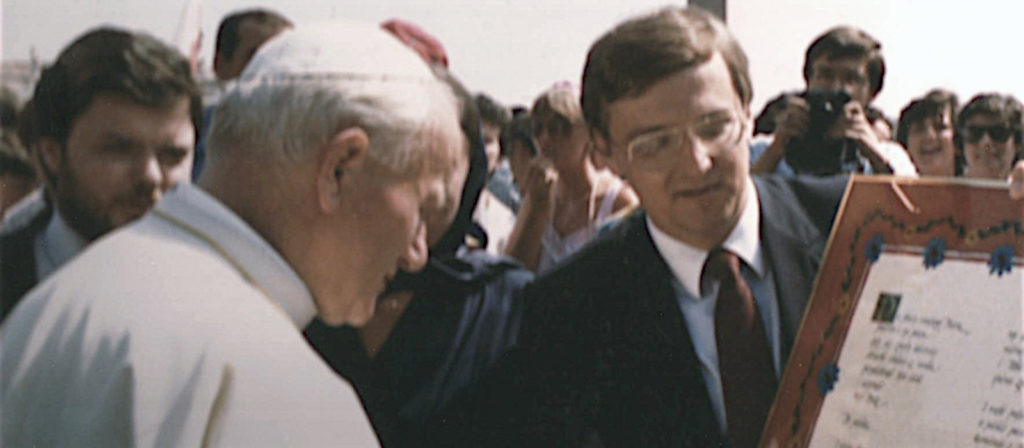
Former Voice of America (VOA) director and former Broadcasting Board of Governors (BBG) Chairman Ken Tomlinson, who died in 2014, told the Voice of America in 2012 that his most memorable moment at VOA was to visit the Polish Service and help arrange extensive news coverage of Pope John Paul II’s visit to Poland when the country was still under communist rule during the Cold War. The Pope’s visit to Poland helped the suppressed Solidarity trade union to intensify its peaceful struggle for democracy and eventually resulted in the fall of communism. Father Stefan Filipowicz, a Chicago-based Jesuit priest and former director of the Polish Service at Vatican Radio, provided religious commentary from a VOA studio in Washington during the coverage of the papal visit. Live audio transmission from Poland was provided to VOA by Vatican Radio.
Ken Tomlinson and his wife Rebecca later traveled to Rome with VOA Polish Service director Ted Lipien to meet Pope John Paul II who thanked the Voice of America for broadcasting news to his countrymen in Poland under communism.
Thanks to Ken Tomlinson’s support, funding from the Reagan administration and full bipartisan backing in the U.S. Congress, the Polish Service became one of the most successful language services in the history of VOA, with over 70% weekly audience reach in Poland in the late 1980s according to a poll conducted by the Solidarity trade union. Surveys conducted among travelers from Eastern Europe by independent market research firms in Western Europe showed that VOA’s audience in Poland in the 1980s was between 40 and 50 percent.
Ted Lipien and his deputy Marek Walicki hired a number of highly talented Polish opposition journalists who had sought political asylum in the United States. VOA Polish radio broadcasts had achieved considerable impact thanks to VOA news service, telephone interviews with leading Polish opposition figures, including Lech Walesa, and programs about the United States, including a call-in show hosted by popular radio personality, former Radio Free Europe music program DJ Jan (Janusz) Herburt-Hewell.
KEN TOMLINSON: I’m a conservative Republican, but I said when I was VOA Director that you can’t understand America if you hear only one voice. Voice of America has to reflect the voices of America across the responsible political spectrum.
Notes:
- Gati, Charles, ed. Zbig: The Strategy and Statecraft of Zbigniew Brzezinski. Baltimore, MD: Johns Hopkins University Press, 2013.
In Chapter 10, “Brzezinski, the Pope and the ‘Plot’ to Free Poland,” Patrick Vaughan wrote (p. 126): “Brzezinski considered RFE very useful. In the White House, he had pushed for a vast increase in the transmitter strength of the five-station network broadcasting to the countries of the Eastern Block in their native languages. Brzezinski advised Carter that the radios were an invaluable weapon in the cold war that was as much about ideas as ballistic missiles and fighter jets. He did so despite the fact that in the early 1970s American senators, among others, had dismissed RFE as a ‘cold war relic.’
Karol Cardinal Wojtyla, then archbishop of Krakow, was one of the million of Poles who listened to RFE each morning. When, at an event in West Germany many years later, an announcer from the radio’s Polish desk introduced himself to Wojtyla, the cardinal replied ‘There is no need. I recognize your voice. I listen to you every morning as I shave.'” ↩


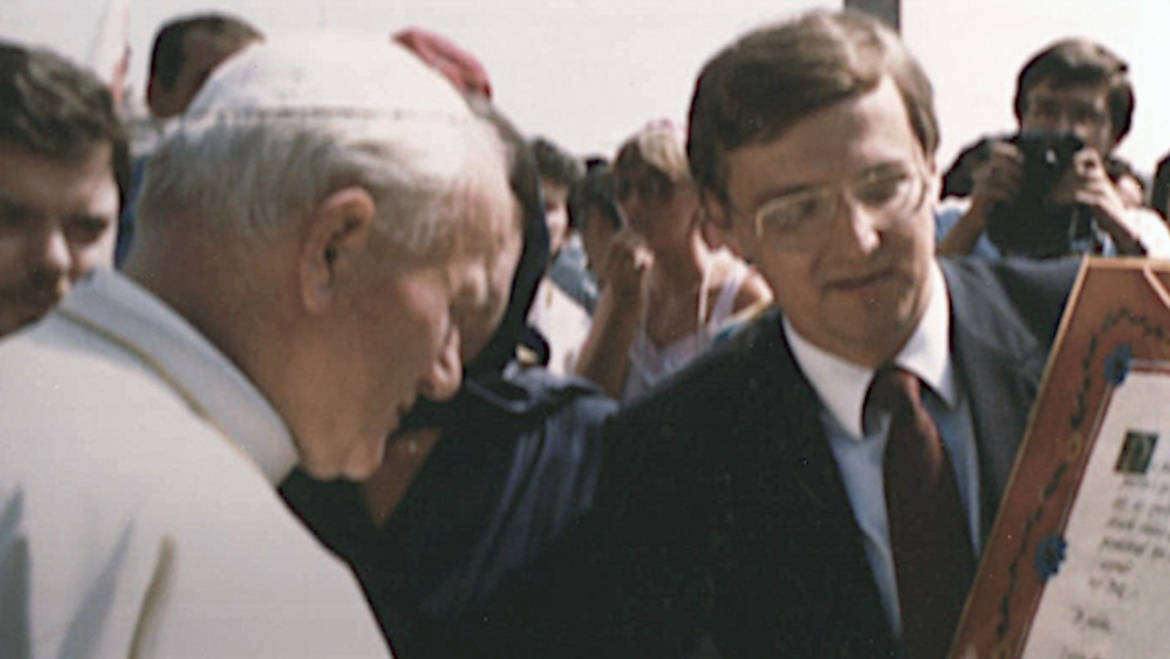
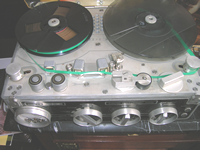
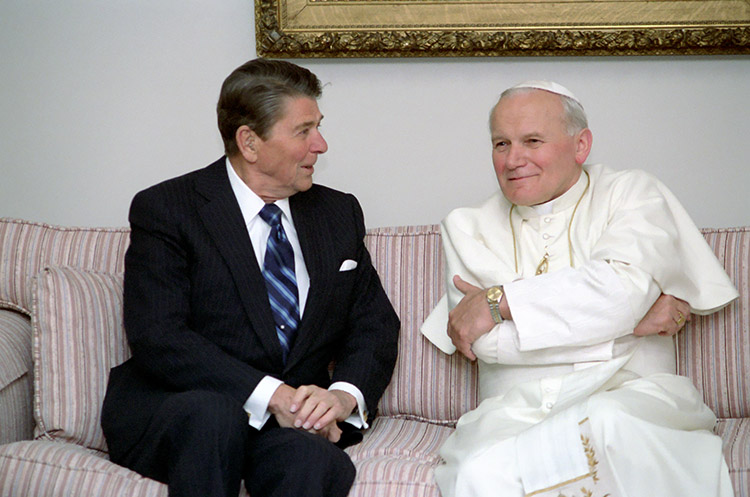
1 Comment
Add Comment